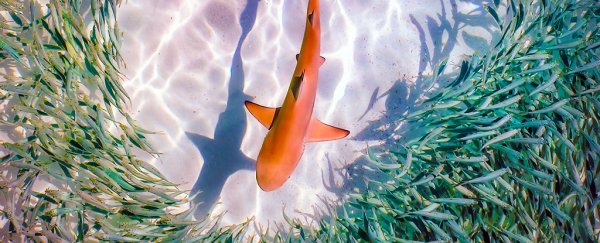Your pet's dinner may contain endangered shark – even if the ingredients on the label don't explicitly include "shark", a recent analysis of commercially produced pet foods has found.
Pet foods often describe their ocean-sourced ingredients with generic terms such as "fish", "white fish", "white bait", or "ocean fish" and researchers wondered if genetic testing might reveal information that was missing from the labels.
They collected and sequenced samples from 45 pet food products representing 16 brands sold in Singapore. Though none of the product labels listed sharks among the ingredients, the researchers found that 31 percent of the samples contained shark DNA.
In a number of cases, the DNA came from sharks that are classified as vulnerable by the International Union for Conservation of Nature (IUCN); such species included the silky shark (Carcharhinus falciformis) and the whitetip reef shark (Triaenodon obesus).
Related: Will eating pet food kill me?
The scientists tested the samples with DNA barcoding, which identifies species by comparing short DNA sequences to a database of so-called genetic barcodes from the genomes of known species.
Because canned pet foods are highly processed, which destroys DNA, the researchers used a technique known as mini-barcoding, which can amplify even small genomic sequences in degraded samples.
Blue sharks (Prionace glauca) were most common in the tested samples, appearing seven times; these sharks are ranked as near-threatened by the IUCN.
Other studies have shown that blue sharks are frequently caught as bycatch in commercial fishing, and their occurrence is high in the shark fin trade in Southeast Asia, the scientists said in the study. Both of these factors could explain why blue sharks wind up in pet food, which would prevent the carcasses from going to waste.
After blue sharks, silky sharks and whitetip reef sharks were most common in the samples; the researchers identified nine species in all, including spottail sharks (C. sorrah), sliteye sharks (Loxodon macrorhinus) and sand tiger sharks (Carcharias taurus).
They also noted that 16 samples included DNA from sharks that could be identified only by their genus: Carcharhinus.
While it isn't illegal for pet food companies to omit specific mention of shark meat in their products, the vagueness of terminology like "ocean fish" prevents pet owners from making "informed and environmentally conscious decisions" about what they're feeding their animals, the scientists wrote.
"We argue that many pet owners and lovers would be alarmed to find out that they are likely contributing to the unsustainable fishing practices that have caused massive declines in global shark populations," reducing shark numbers by over 70 percent worldwide over the past 50 years, the study authors reported.
The findings were published March 4 in the journal Frontiers in Marine Science.
Related content:
7 unanswered questions about sharks
20 times sharks made our jaws drop
10 things you didn't know about dogs
This article was originally published by Live Science. Read the original article here.
